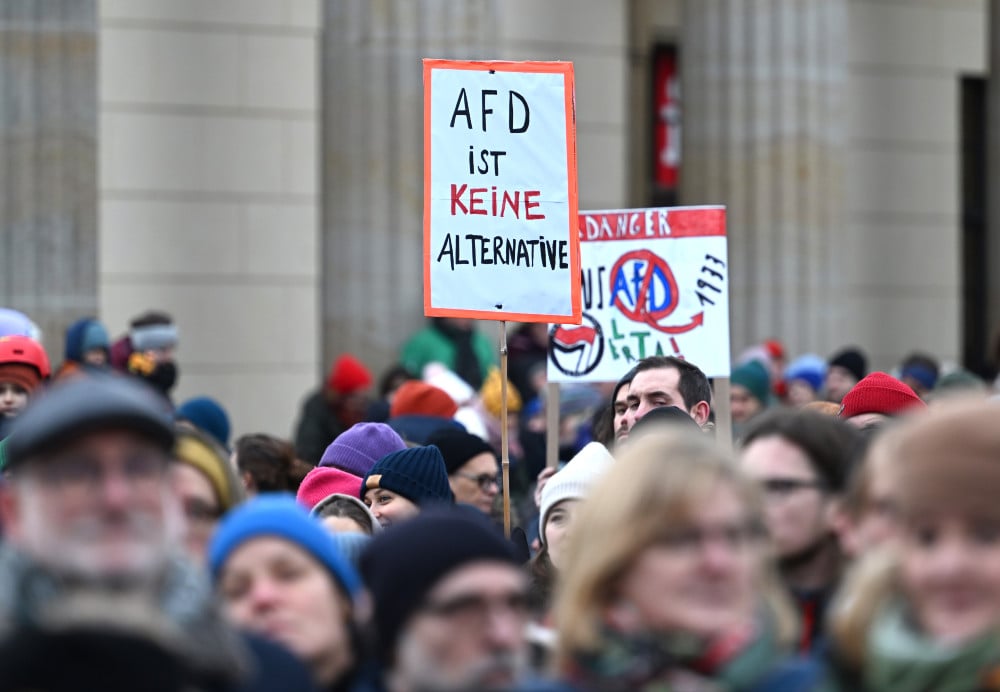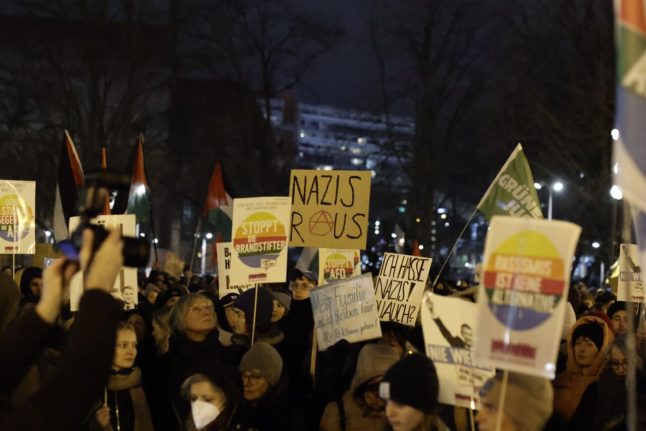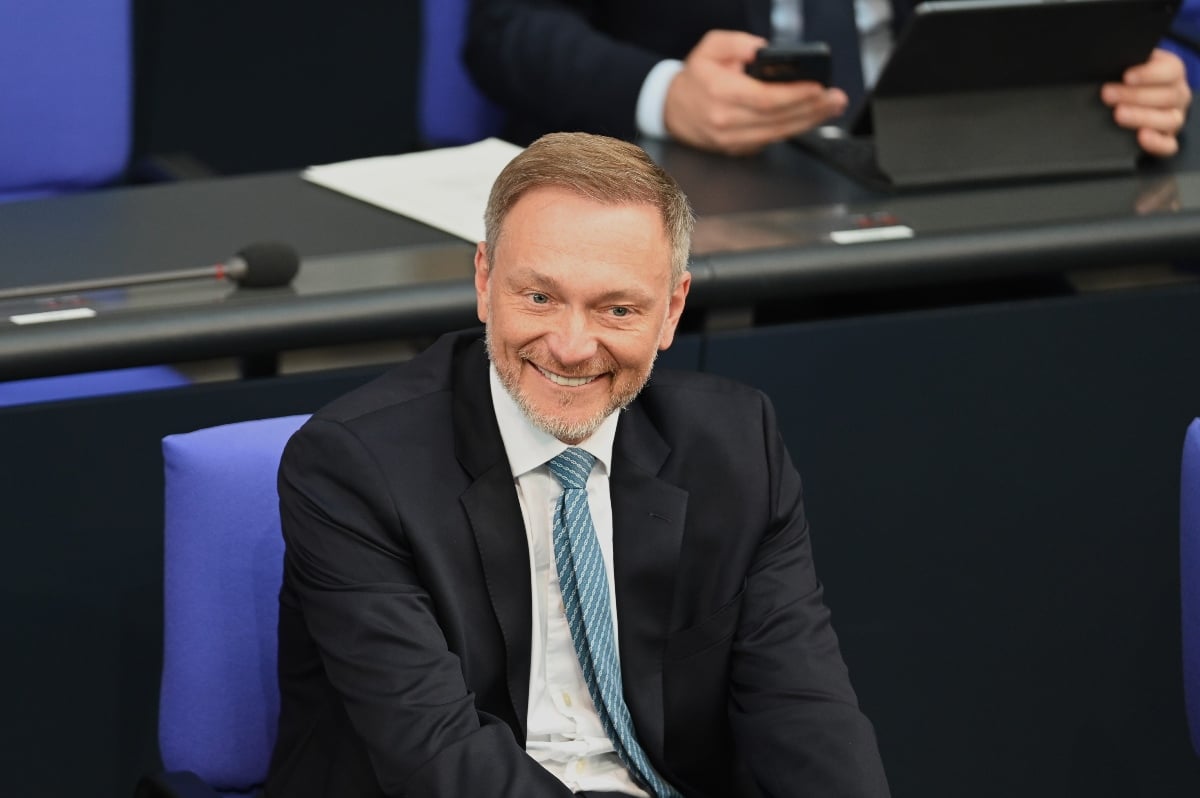From Cologne to Leipzig to Nuremberg, Germans across the country have mobilised over the last week, with another 100 demonstrations expected through the weekend.
Many of the demonstrations are held under the banner “together against the far-right”, with Chancellor Olaf Scholz and Foreign Minister Annalena Baerbock also joining a spontaneous gathering in Potsdam, where they live.
Bundesliga coaches and church bishops have also issued calls warning against support for the AfD, with the manager of SC Freiburg Christian Streich saying that “anyone who does nothing now has learned nothing from school or history”.
The sudden and widespread mobilisation was sparked by a January 10 report by investigative outlet Correctiv which revealed that AfD members had discussed the expulsion of immigrants and “non-assimilated citizens” at a meeting with extremists.
Among the participants at the talks was Martin Sellner, a leader of Austria’s Identitarian Movement, which subscribes to the “great replacement” conspiracy theory that claims there is a plot by non-white migrants to replace Europe’s “native” white population.
PODCAST: Germany’s citizenship law reaches crucial stage and could the AfD be banned?
News of the gathering sent shockwaves across Germany at a time when the AfD is soaring in opinion polls, just months ahead of three major regional elections in eastern Germany where their support is strongest.
The “scandalous meeting” revived “the fear of deportations of millions of citizens or non-citizens, a fear that is part of the criticised heritage of Nazism,” said Hajo Funke, a political analyst who specialises in the far-right.

The “silent majority must wake up and take a clear position against extremism in Germany,” urged domestic intelligence chief Thomas Haldenwang.
Thanking those who have come out in the last days to make their voices heard, Scholz wrote on X that the protests “are encouraging and show that there are more of us democrats than those who want to divide us”.
‘Normalisation over’
The AfD was created in 2013 as an anti-euro outfit before seizing on anger over mass migration to Germany to garner enough votes to enter the Bundestag in 2017.
While support for the party eased subsequently, it has enjoyed a resurgence over the last year, feeding on frustration as Germany ails from soaring inflation and a weak economy.
Nationwide, it is polling at about 22 percent, behind the conservatives but well above Scholz’s social democrats at about 16 percent.
READ ALSO:
- AfD denies plans to expel unassimilated foreigners
- German minister warns AfD over ‘deportation’ talks row
In eastern Germany however, it is leading the polls, with more than 30 percent in the states of Thuringia, Saxony and Brandenburg, which are all due to hold regional elections in September.
The AfD had planted itself firmly onto the political landscape since its entrance in the Bundestag but after the meeting unveiled by Correctiv, “this normalisation of the party is over,” said Funke.
The AfD confirmed the presence of its members at the meeting, but has denied taking on the “remigration” project championed by Sellner.
But the scandal showed “the real face” of the party, said Lars Klingbeil, co-leader of Scholz’s SPD.
Outright ban?
Voices calling for an outright ban of the party have also grown louder.
Even if it has few chances of succeeding, a petition demanding the removal of constitutional rights for Björn Höcke, one the AfD’s most controversial politicians, has already garnered a million signatures.
Several branches of the AfD are already under close surveillance of the domestic intelligence agency and in this context, “the state should look at a possible ban of the AfD,” said Wolfgang Thierse, a former speaker of parliament.
But others are sceptical about the effectiveness of launching such a long and complex procedure, as failure to win the ban risks further nourishing the AfD’s “victim narrative”.
But “if it’s proven that a party wants to transform the country into a fascist state, it must be banned, no matter how powerful it is,” said Vice Chancellor Robert Habeck in an interview with Stern magazine.
By Isabelle LE PAGE




 Please whitelist us to continue reading.
Please whitelist us to continue reading.
Member comments